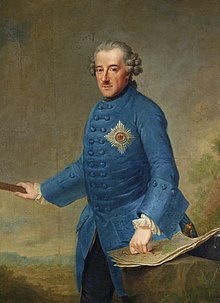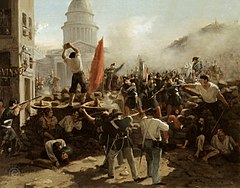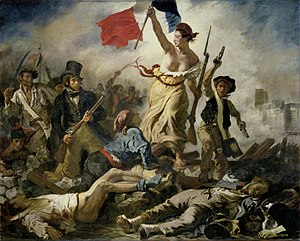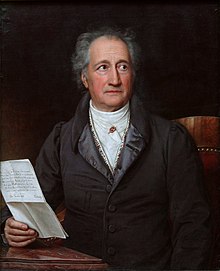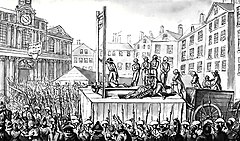
Tim Blanning
Emeritus Professor of Modern European History at the University of Cambridge
7 episodes
Covers topics in categories such as:
The Congress of Vienna
Melvyn Bragg and guests discuss the peace plan for Europe after the Napoleonic Wars, with the redrawing of borders and balancing of the great powers so that none would be dominant.
19 October 2017
Also featuring: Kathleen Burk, John Bew
Frederick the Great
Melvyn Bragg and guests discuss Frederick II, king of Prussia from 1740 to 1786.
2 July 2015
Also featuring: Katrin Kohl, Thomas Biskup
History18th-century German composersGerman opera librettistsGerman military writersGerman male classical composersRoyal reburials18th-century male musiciansGerman critics of ChristianityGerman classical composersGerman FreemasonsWriters from BerlinPeople of the Age of Enlightenment18th-century classical composersPeople of the Silesian Wars18th-century German LGBTQ people18th-century art collectors, German art collectors, People of the War of the Bavarian Succession, Recipients of the Order of the White Eagle (Poland)1848: Year of Revolution
Melvyn Bragg and guests discuss 1848, the year that saw Europe engulfed in revolution. Governments from Paris to Palermo were toppled, but the effects were not to last.
19 January 2012
Also featuring: Lucy Riall, Mike Rapport
Delacroix's Liberty Leading the People
Melvyn Bragg and his guests discuss Eugene Delacroix's painting Liberty Leading the People, his celebrated depiction of the events of the 1830 July Revolution.
20 October 2011
Also featuring: Tamar Garb, Simon Lee
Goethe
Melvyn Bragg discusses the great German polymath Johann Wolfgang Goethe - novelist, dramatist, poet, humanist, scientist and philosopher.
6 April 2006
Also featuring: Sarah Colvin, W. Daniel Wilson
Philosophers of linguisticsGerman philosophers of artRomantic poetsGerman philosophers of scienceGerman political philosophersJohann Wolfgang von Goethe, Sturm und Drang18th-century German civil servants, 18th-century German dramatists and playwrights, 18th-century German historians, 18th-century German novelists, 18th-century German poets, 18th-century travel writers, 19th-century German civil servants, 19th-century German diplomats, 19th-century German dramatists and playwrights, 19th-century German poets, German bibliophiles, German diplomats, German male novelists, People from Weimar, Scientists from Weimar, Writers from Frankfurt, Writers from WeimarLiteracy and society theoristsPhilosophers of social science19th-century German philosophersTheorists on Western civilizationGerman travel writersPhilosophers of literaturePhilosophers of sexualityEpic poets19th-century German novelistsPhilosophy writersLeipzig University alumni18th-century German male writersEpigrammatists18th-century German philosophers, 18th-century essayists19th-century travel writers19th-century German male writersUniversity of Strasbourg alumniGerman philosophers of languageMembers of the Göttingen Academy of Sciences and HumanitiesLiterary theoristsMembers of the Bavarian Academy of SciencesFabulistsGerman untitled nobilityGerman philosophers of culture19th-century German essayistsGerman male essayists18th-century German educators, 18th-century historians, 19th-century German educators, 19th-century historiansGerman autobiographersGerman ethicists, German philosophers of educationNatural philosophersGerman male dramatists and playwrights, German male poetsPantheistsFreethought writersEnlightenment philosophersGerman librariansWriters about activism and social changeColor scientistsGerman Freemasons19th-century German historians19th-century German non-fiction writersGerman philosophers of historyGerman male non-fiction writersThe French Revolution's Reign of Terror
Melvyn Bragg discusses the reign of terror during the French Revolution and whether it was an aberration of the revolutionary cause or its natural culmination.
26 May 2005
Also featuring: Mike Broers, Rebecca Spang
The Artist
Melvyn Bragg discusses the rise of the idea of the artist and the claims made for it, and examines the role that aristocratic patronage of the arts has played in changing the status of the artist.
28 March 2002
Also featuring: Emma Barker, Thomas Healy

